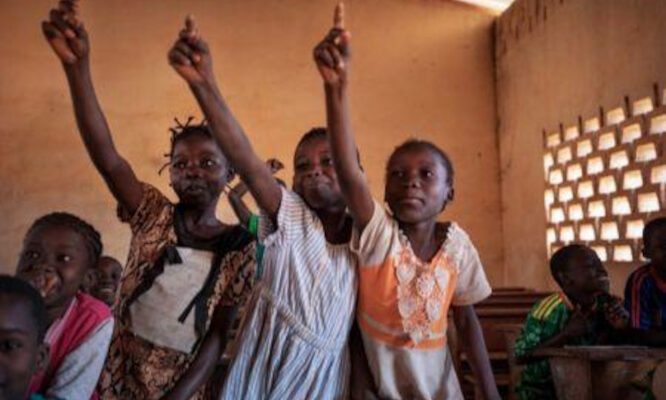
• 1,000 teachers and parents to be trained in school management in crisis zones
• Supported by UNICEF and “Education Cannot Wait” to address low school attendance
• Just 27% of children complete primary school; 63% miss regular attendance
In the Central African Republic, where only 27% of children complete primary school and 63% do not attend regularly, community-driven efforts are key to expanding access to education. On June 9, UNICEF announced its support for a new program to train 1,000 teachers and parent volunteers in educational facilitation and school management in crisis-affected areas.
Backed by the “Education Cannot Wait” program, the initiative also engages community leaders, religious figures, and local authorities to foster shared responsibility for education. The project includes the distribution of educational kits and public awareness campaigns on children’s rights to build lasting local support.
The approach aims to strengthen community involvement in managing rural schools, improve retention, particularly among girls, and restore basic infrastructure. It also enhances communication among families, educators, and institutions.
Despite these gains, the country faces major structural barriers. With one of the lowest school enrollment rates in Africa, over 1.2 million children needed educational support in 2024, according to UNICEF. Minister of Education Aurélien-Simplice Kongbelet-Zingas stressed the need to reaffirm the role of communities in creating inclusive and sustainable schools amid structural and circumstantial challenges.
The success of this model depends on its integration into national education policy, adequate funding, and continued technical support. Similar programs have yielded results elsewhere in Africa. In Sierra Leone, the REDiSL program raised school attendance from 81.6% to 90% between 2018 and 2020, according to the World Bank.
Community-led education models have shown they can strengthen school management and improve access. The Central African Republic must now convert this momentum into a durable foundation for a stronger education system.











Comments